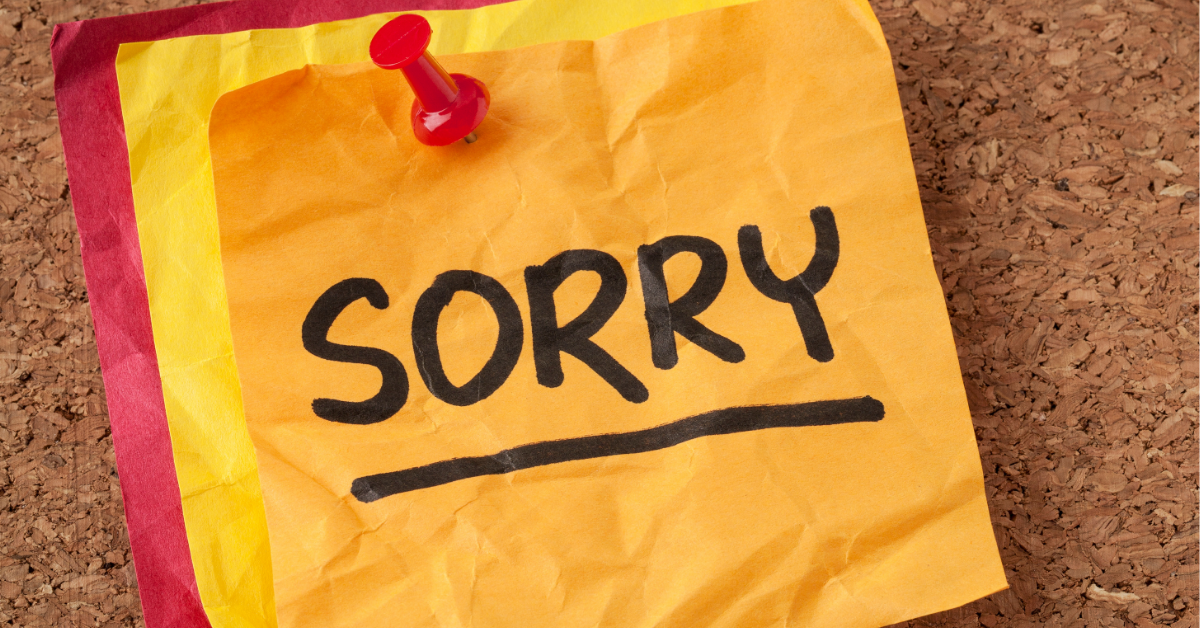In 2020, I wrote a blog about the worst corporate brand apologies, dissecting iconic missteps such as the Pepsi x Kendall Jenner Super Bowl commercial and a Peloton holiday ad that landed disastrously. When I set out to revisit this topic over five years later, bad brand apologies didn’t come to mind as quickly. But why? A few factors came to mind:
- Cancel culture has caused us to become overly concerned with appealing to the masses. As a result, brands over-censor messages and lack the boldness that may warrant an apology.
- Brands are opting not to apologize at all — instead letting the issue blow over until today’s always-on news cycle buries their missteps with the next scandal.
- The current political and cultural climate in the U.S. is such that nothing really shocks us anymore. Perhaps there are more brand apologies than ever, but the oversaturation makes each stand out even less. After all, we only have capacity for so much daily outrage.
While all three possibilities are likely, I think apologies are simply getting lost in the noise. That doesn’t mean there aren’t some notable exceptions. Some even got it right because of the important ingredient they used – authenticity. Without it, you’re just compounding the original error.
Bumble
The Situation: Bumble launched an ad campaign to address dating fatigue. One billboard read, “You know full well a vow of celibacy is not the answer,” with another saying, “Thou shalt not give up on dating and become a nun.” Consumers criticized the campaign as tone-deaf and sexist, arguing that it mocked women who choose celibacy or abstinence as forms of empowerment or self-care.
The Apology: Bumble posted on Instagram: “We made a mistake. Our ads referencing celibacy were an attempt to lean into a community frustrated by modern dating, and instead of bringing joy and humor, we unintentionally did the opposite.” The brand pledged to remove the ads, donate to organizations such as the National Domestic Violence Hotline, and offer the billboard space to these groups.
Evaluation: Overall, this one gets a 9/10 from me. Bumble made a sincere apology quickly and effectively. It acknowledged the mistake, showed understanding of their audience’s perspective, and then followed with meaningful action that is aligned with causes that matter most to their customers.
American Eagle
The Situation: A recent American Eagle campaign featuring actress Sydney Sweeney played on the idea of “good genes” and AE denim. One video from the campaign had Sweeney say, “Genes are passed down from parents to offspring … My jeans are blue.” The campaign drew criticism online for playing on ideas of “good genes” and highlighting a blonde-haired, blue-eyed white woman — some argued the messaging echoed historical eugenics and white supremacist rhetoric.
The Apology: “….”
Evaluation: 0/10. Without taking any accountability, the story snowballed, resulting in more than 3,000 negative news articles and a major hit to in-store foot traffic. Any acknowledgement of a misstep or even a generic apology could have mitigated this. In fact, Kearney Consumer Institute data show that 61% of consumers who boycott a brand return after a generic apology. Generic though, doesn’t mean templated or inauthentic. Going back to the basics and just saying ‘We messed up. We’re sorry.’ is better than ‘We sincerely apologize if we offended you.’
Swatch
The Situation: Swiss watchmaker Swatch released an ad campaign for its “Essentials” collection, featuring an Asian model making a ‘slanted-eye’ gesture. The imagery drew sharp backlash in Asia and beyond as culturally insensitive.
The Apology: Swatch issued a statement: “We have taken note of the recent concerns … and have immediately removed all related materials worldwide. We sincerely apologise for any distress or misunderstanding this may have caused.”
Evaluation: 6/10. Swatch acted quickly to pull the campaign, which is good. But the wording is where this one loses points for me. Calling it a “misunderstanding” places the blame on the interpreter, decreasing the apology’s credibility. It feels formulaic and lacks the emotion that conveys real understanding and regret.
Although playing it safe may save your brand the trouble of an apology, I propose that brands take risks, and be bold. Our industry desperately needs it. We can’t keep sterilizing brand communications so that they’re completely devoid of personality. But if you make a misstep, be prepared to apologize. And mean it.

